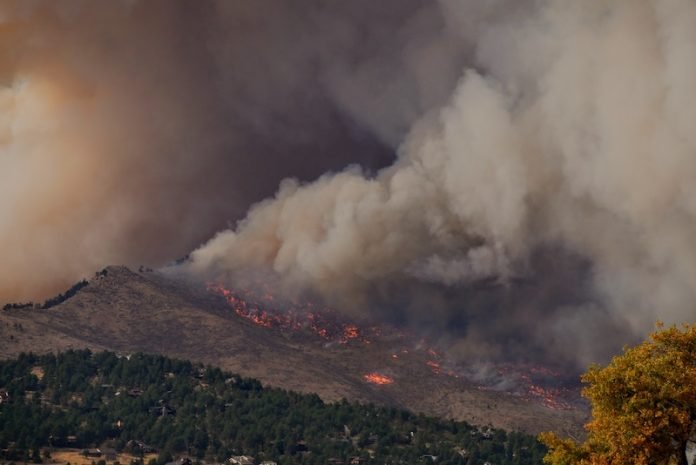
As wildfires spread across southern Canada, smoke from those fires drifts into the U.S., causing increased health risks.
The American Heart Association warns that exposure to wildfire smoke poses a higher risk for heart disease in both the short and long term. Dr. Comilla Sasson, vice president for science and innovation at the American Heart Association, highlights the importance of understanding the impact of smoke on cardiovascular health.
Evidence Linking Smoke Exposure to Cardiovascular Risk
Several studies following wildfires in California have linked smoke exposure to an increased risk of sudden cardiac arrest and a higher volume of emergency room visits for cardiovascular disease-related causes.
A study published in 2020 revealed that exposure to heavy smoke during wildfires raised the risk of out-of-hospital cardiac arrests by up to 70%.
These risks were elevated among adults aged 35-64 and in communities with lower socioeconomic status.
Increased Rates of ER Visits and Other Conditions
Previous research also revealed an association between wildfire smoke exposure and increased rates of emergency room visits for conditions like ischemic heart disease, irregular heart rhythm, heart failure, pulmonary embolism, and stroke.
ER visits for heart attacks increased by 42%, and visits for ischemic heart disease increased by 22% within a day of exposure to dense wildfire smoke.
Recognizing Symptoms and Protecting Yourself
Those with underlying cardiovascular disease risk factors may be more susceptible to an acute cardiovascular event when exposed to wildfire smoke.
Recognizing the signs of a heart attack or stroke and knowing how to perform CPR could be crucial during such times.
Tracking Air Quality and Following Alerts
The U.S. Environmental Protection Agency provides a ZIP code-level tracking map of current air quality at airnow.gov.
Regular checks and adherence to local health department alerts can help individuals protect themselves from the harmful effects of smoke exposure.
Tips to Reduce Exposure to Wildfire Smoke
Dr. Sasson offers tips for reducing exposure to wildfire smoke.
These include staying indoors, using high-efficiency air filters or portable air cleaners, avoiding exertion, staying well hydrated, and seeking alternate shelter if your home doesn’t have air conditioning and it’s too hot to stay indoors.
The Role of Portable Air Cleaners
The American Heart Association’s 2020 scientific statement on air pollution exposure noted the effectiveness of portable air cleaners, which can reduce indoor particulate matter by as much as 50-60%.
These devices are relatively cost-effective considering their potential benefits in reducing cardiopulmonary outcomes.
Stay Alert and Prepared
While the physical wildfires may not directly impact most people in the U.S., exposure to the lingering smoke can be extremely harmful.
Dr. Sasson advises everyone to stay alert, prepared, and take the necessary precautions to protect themselves.
If you care about health, please read studies about the benefits of low-dose lithium supplements, and what we know about egg intake and heart disease.
For more information about health, please see recent studies about potatoes and high blood pressure, and results showing 6 best breads for people with heart disease.
Copyright © 2023 Knowridge Science Report. All rights reserved.



